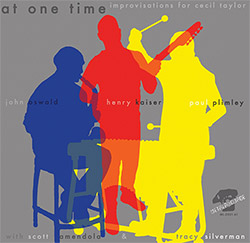
In tribute to late free jazz pianist Cecil Taylor, the West Coast/Vancouver trio of guitarist Henry Kaiser, alto saxophonist John Oswald and vibraphonist Paul Plimley explore the intention of Taylor's singular style in six anagrammatically titled improvisations, with Chicago violinist Tracy Silverman joining for the massive "Oceans Felons Salad", and Scott Amendola joing for "fir loom".
In Stock
Quantity in Basket: None
Log In to use our Wish List
Shipping Weight: 3.00 units
EU & UK Customers:
Discogs.com can handle your VAT payments
So please order through Discogs
Sample The Album:
Henry Kaiser-guitar
John Oswald-alto saxophone
Paul Plimley-vibes
Scott Amendola-drums (track 6)
Tracy Silverman-6 string fiddle (track 2)
Click an artist name above to see in-stock items for that artist.
UPC: 195269112615
Label: Metalanguage
Catalog ID: ML-2021-61
Squidco Product Code: 31087
Format: CD
Condition: New
Released: 2021
Country: USA
Packaging: Cardboard sleeve, sealed
Recorded in Spring, 2021.
"The three leaders, on At One Time, Henry Kaiser, John Oswald, and Paul Plimley, have all worked with Cecil Taylor, both in performance and in workshops. Here, they share their love of the late master Taylor's music with a celebration of language and narrative strategies that were discovered/pioneered by the great piano maestro.
Two special guests join them to make quartets on two tracks. Scott Amendola joins in on drums and Tracy Sliverman brings his 6-string electric fiddle to the party. Unusually, pianist Paul Plimly chose to entire play vibes on this album. Oswald plays alto sax, as is usual. Kaiser plays electric and acoustic guitars + electric bass.
Kaiser, Oswald, and Plimley have been collaborating together for well more than 40 years; this project is also a celebration of their friendship and love of improvising together, recorded during tough COVID times."-Metalanguage

The Squid's Ear!
Artist Biographies
• Show Bio for Henry Kaiser "Henry Kaiser (born September 19, 1952) is an American guitarist and composer, known as an idiosyncratic soloist, a sideman, an ethnomusicologist, and a film score composer. Recording and performing prolifically in many styles of music, Kaiser is a fixture on the San Francisco Bay Area music scene. He is considered a member of the "second generation" of American free improvisers. He is married to Canadian artist Brandy Gale. In 1977, Kaiser founded Metalanguage Records with Larry Ochs (Rova Saxophone Quartet) and Greg Goodman. In 1979 he recorded With Friends Like These with Fred Frith, a collaboration that lasted for over 20 years. In 1983 they recorded Who Needs Enemies, and in 1987 the compilation album With Enemies Like These, Who Needs Friends? They joined with fellow experimental musicians John French, and English folk-rocker Richard Thompson to form French Frith Kaiser Thompson for two eclectic albums, Live, Love, Larf & Loaf (1987) and Invisible Means (1990). In 1999 Frith and Kaiser released Friends and Enemies, a compilation of their two Metalanguage albums along with additional material from 1984 and 1999. In 1991, Kaiser went to Madagascar with guitarist David Lindley. They recorded roots music with Malagasy musicians and discovered music that, he says, "changed us radically and permanently". Three volumes of this music were released by Shanachie under the title A World Out of Time. In 1994 he made a similar trip to Norway, again with Lindley, recording music that was released as Sweet Sunny North (2 volumes, 1994 and 1996). Since 1998, Kaiser has been collaborating with trumpeter Wadada Leo Smith in the "Yo Miles!" project, releasing a series of tributes to Miles Davis's 1970s electric music. This shifting aggregation has included musicians from the worlds of rock (guitarists Nels Cline, Mike Keneally and Chris Muir, drummer Steve Smith), jazz (saxophonists Greg Osby and John Tchicai), avant-garde (keyboardist John Medeski, guitarist Elliott Sharp), and Indian classical music (tabla player Zakir Hussain). Kaiser has appeared on more than 250 albums and scored dozens of TV shows and films, including Werner Herzog's Encounters at the End of the World (2007). He was given a Grammy Award for his work on the Beautiful Dreamer tribute to Stephen Foster. In 2001, Kaiser spent two and a half months in Antarctica on a National Science Foundation Antarctic Artists and Writers Program grant. He has subsequently returned for nine more visits to work as a research diver. His underwater camera work was featured in two Herzog films, The Wild Blue Yonder (2005) and Encounters at the End of the World (2007), which he also produced, and for which he and Lindley composed the score. Kaiser served as music producer for Herzog's Grizzly Man (2005). He was nominated for an Academy Award for his work as a producer on Encounters at the End of the World." ^ Hide Bio for Henry Kaiser • Show Bio for John Oswald "John Oswald (born May 30, 1953 in Kitchener, Ontario) is a Canadian composer, saxophonist, media artist and dancer. His best known project is Plunderphonics, the practice of making new music out of previously existing recordings (see sound collage and musical montage). Oswald coined the term "plunderphonics" to describe his craft in a paper called "Plunderphonics, or Audio Piracy as a Compositional Prerogative" which he presented at the Wired Society Electro-Acoustic Conference in Toronto in 1985. Inspired by William S. Burroughs' cut-up technique, Oswald had been devising plunderphonic-style compositions since the late 1960s. In an interview with Norman Igma following the release of the Plunderphonics EP in 1988, he described the concept as follows: A plunderphone is a recognizable sonic quote, using the actual sound of something familiar which has already been recorded. Whistling a bar of "Density 21.5" is a traditional musical quote. Taking Madonna singing "Like a Virgin" and rerecording it backwards or slower is plunderphonics, as long as you can reasonably recognize the source. The plundering has to be blatant though. There's a lot of samplepocketing, parroting, plagiarism and tune thievery going on these days which is not what we're doing. Plunderphonics is related to but distinct from sampling used in genres such as hip-hop. His 1975 track "Power" married frenetic Led Zeppelin guitars to the impassioned exhortations of a Southern US evangelist years before hip hop discovered the potency of the same (and related) ingredients. Similarly, his 1990 track "Vane", which pitted two different versions of the song "You're So Vain" (the Carly Simon original and a cover by Faster Pussycat) against each other, was a blueprint for the contemporary pop subgenre, 'glitch pop' or 'mashup (music)'. In 1980, Oswald founded the Mystery Tapes Laboratory, which created unnamed, unattributed works on cassette, described on the plunderphonics website as "little boxes of sonifericity specifically formulated for the curious listener. Available in your choice of aural flavors: subliminal, blasted, excerpted, repeatpeateatattttttedly, these cinemaphonically-concocted aggregates of très different but exquisitely manifest, unprecedentedly varied festerings of audio quality fine magnetic cassette tapes are the best of whatever you've been listening for". Oswald continues to be Director of Research at Mystery Tapes. His greatest source of controversy was the 1988 release of the Plunderphonics EP, which he distributed to the press and to radio stations. It contained four plundered tracks: "Don't" by Elvis Presley which included piano accompaniment by Bob Wiseman, "Pocket" by Count Basie, a version of Dolly Parton singing "The Great Pretender" in which "she gets to sing a duet with himself(sic)", and "Spring", a version of Igor Stravinsky's The Rite of Spring. In 1989, Oswald released an expanded version of the Plunderphonics album containing twenty-five tracks, each using material from a different artist. In 1990, notice was given to Oswald by the Canadian Recording Industry Association on behalf of several of their clients (notably Michael Jackson, whose song "Bad" had been cut up, layered, and rearranged as "Dab") that all undistributed copies of Plunderphonics be destroyed under threat of legal action. An excerpt from a press release on the plunderphonics website is repeated below: "I wasn't selling the disc in the stores, so I let listeners tape it off the radio for free," explains Oswald, who paid for the production and manufacture of the CD out of his own pocket. He receives no royalties or financial compensation for airplay. Brian Robertson, president of CRIA says, ``What this demonstrates is the vulnerability of the recording industry to new technology...All we see is just another example of theft." Oswald received notice from CRIA's lawyers demanding that he cease distributing Plunderphonic as of Xmas eve '89. "They insisted I quit playing Santa Claus," Oswald observes. In 1993 Oswald released Plexure. Arguably his most ambitious composition to date, it attempted to microsample the history of CD music up to that point (1982-1992) in a 20 minute collage of bewildering complexity. The ambition of this piece would later be recalled by the British bootlegger Osymyso, whose "Intro-Inspection" emulates the pop-junkie feel of Plexure. From 1993-1996, Oswald worked on and released Grayfolded, a 2-Disc set commissioned by the Grateful Dead consisting of pieces created from over 100 performances of the song "Dark Star". Oswald initially created and released disc 1, "Transitive Axis", which contains a 59 minute 59 second work in 9 movements. Feeling that there was more territory to explore, Oswald worked on disc 2, Mirror Ashes, which is a composition in "6*" movements. Once both discs were complete they were packaged together with extensive liner notes and a "visual time map" of the sources used in the compositions. Grayfolded was selected the #1 international recording of the decade by the Toronto Sun. In addition to his extensive work in "plunderphonics", Oswald is also involved with acoustic music, as a composer and improviser. His compositions for orchestra often do include electronic elements, such as Concerto for Wired Conductor and Orchestra (?), but has also composed for acoustic ensembles, such as Acupuncture (1991). Oswald improvises with the saxophone, and is a member of free improvisation group CCMC. Oswald is also actively involved in dance, as a composer for dance works, as a collaborator with choreographers, and as an active Contact Improviser. Oswald founded the record label fony, which produced the retrospective box set 69 plunderphonics 96 (a.k.a. Plunderphonics 69/96) and reissued Grayfolded. The label also rereleased Plexure and released Aparanthesi, a work which uses the single note A in an experiment with timbre, dynamics, and layering, on CD in 2003. Since 2000 Oswald has as active in exhibiting his visual art as in continuing his musical activities. In 2004, Oswald was one of six artists to win the annual Governor General's Awards in Visual and Media Arts, as awarded by the Canada Council for the Arts, for lifetime achievement." ^ Hide Bio for John Oswald • Show Bio for Paul Plimley "Paul (Horace) Plimley (born 16 March 1953 in Vancouver, British Columbia) is a free jazz pianist and vibraphonist. He is one of the doyens of the Canadian jazz avant-garde, a co-founder of the New Orchestra Workshop Society and frequent collaborator with the bassist Lisle Ellis. He is well versed in classical music and in all styles of jazz; he was one of the first and most convincing interpreters of Ornette Coleman's music on the piano (an instrument usually seen as antithetical to Coleman's music). Plimley studied classical piano under Kum-Sing Lee at the University of British Columbia (1971-3). In 1978-9 he studied with Karl Berger and Cecil Taylor at the Creative Music Studio in Woodstock, NY. In 1977 he founded the New Orchestra Workshop (NOW), and he has been active in many of the ensembles associated with NOW, including the NOW Orchestra. His work with Lisle Ellis is extensive, and includes the duo CD Both Sides of the Same Mirror (Nine Winds, 1989); When Silence Pulls, with Andrew Cyrille (Music & Arts, 1990); Noir, with Bruce Freedman and Gregg Bendian (Victo, 1992); Density of the Lovestruck Demons with Donald Robinson (Music & Arts, 1994); and Safecrackers with Scott Amendola (Victo, 1999). Most notable, perhaps, are two recordings for Hat Art: the collection of Ornette Coleman interpretations, Kaleidoscopes (1992), and (under Joe McPhee's leadership), a revisiting of Max Roach's Freedom Now Suite called Sweet Freedom, Now What? (1994). In May 2000 he recorded a live act at the 17th International Festival of New Music in Victoriaville, Quebec with John Oswald, Marilyn Crispell and Cecil Taylor. The album was released at Victo Records. The still Vancouver based musician is a regular at the annual Vancouver International Jazz Festival." ^ Hide Bio for Paul Plimley • Show Bio for Scott Amendola "Scott Amendola (born February 6, 1969) is an American drummer from the San Francisco Bay Area. His styles include jazz, blues, groove, rock and new music. He is considered central to the Bay Area music scene. Amendola was originally from New Jersey and studied at Berklee School of Music in Boston. After relocating to the San Francisco Bay Area he came to popularity in the 1990s as a member of T.J. Kirk with Charlie Hunter, Will Bernard and John Schott. Their second album received a Grammy Award nomination. He has led his own bands and trios which have included Nels Cline, Jenny Scheinman, Jeff Parker and John Shifflett as well as Ben Goldberg and Devin Hoff. Often favoring guitarists he has toured with Bill Frisell and Kelly Joe Phelps and recorded with Pat Martino, Jim Campilongo, G.E. Stinson, Nels Cline and Tony Furtado. He is an original member of the Larry Ochs Sax & Drumming Core. He has been a session percussionist for Noe Venable, Carla Bozulich and Odessa Chen. In 2011 Amendola will have his new orchestral work performed in conjunction with the Oakland East Bay Symphony as one the symphony's New Visions/New Vistas premieres. Amendola will be joined by Nels Cline and Trevor Dunn." ^ Hide Bio for Scott Amendola • Show Bio for Tracy Silverman "Tracy Silverman (born April 7, 1960) is an American violinist, composer, and producer. Born in Peekskill, New York and raised in Beloit, Wisconsin, he attended Beloit Memorial High School but left after two years when he was sixteen to enter the Chicago Musical College. He graduated from the Juilliard School and performs contemporary classical music, avant-garde jazz, and rock, mainly on the six-string electric violin as well as other fretted and fretless acoustic and electric instruments. He recorded his debut solo album for Windham Hill and appeared on many of the label's compilations. He was a violinist with the Turtle Island String Quartet and has performed with pianist Jim Brickman and composer Terry Riley. He performed at the gala opening of Walt Disney Concert Hall in Los Angeles where he was the featured soloist in the premiere of John Adams's composition The Dharma at Big Sur, written specifically for Silverman and his 6-string electric violin. Silverman is the author of "The Strum Bowing Method: How to Groove on Strings" and has taught at Belmont University in Nashville, Tennessee. He has also been an instructor at Mark O'Connor's String Camps as well as The Mark Wood Rock Orchestra Camp. ^ Hide Bio for Tracy Silverman
7/9/2025
Have a better biography or biography source? Please Contact Us so that we can update this biography.
7/9/2025
Have a better biography or biography source? Please Contact Us so that we can update this biography.
7/9/2025
Have a better biography or biography source? Please Contact Us so that we can update this biography.
7/9/2025
Have a better biography or biography source? Please Contact Us so that we can update this biography.
7/9/2025
Have a better biography or biography source? Please Contact Us so that we can update this biography.
Track Listing:
1. Anagram Ritz Rewording 4:17
2. Oceans Felons Salad 26:44
3. Targeted For Who 1:48
4. Loon 9:29
5. Net So 1:06
6. Fir Loom 17:53
Improvised Music
Jazz
Free Improvisation
West Coast/Pacific US Jazz
Trio Recordings
Quartet Recordings
Search for other titles on the label:
Metalanguage.

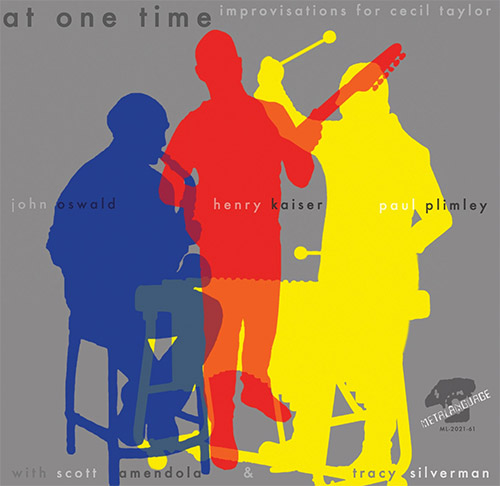
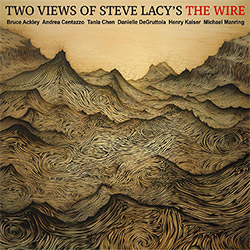
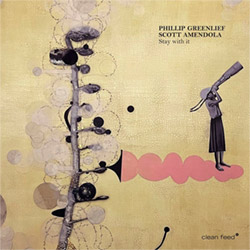
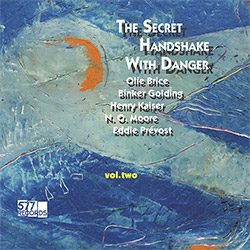
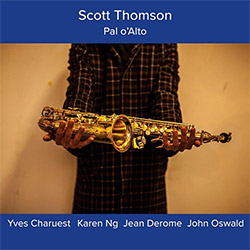





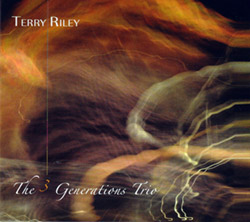
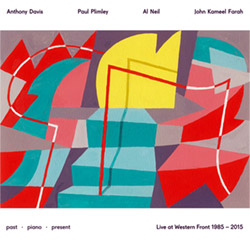

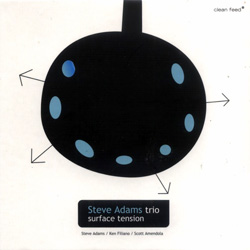
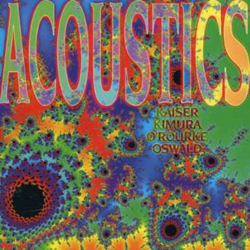

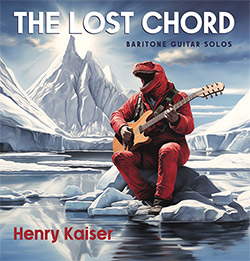
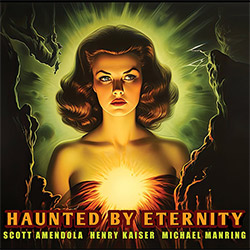
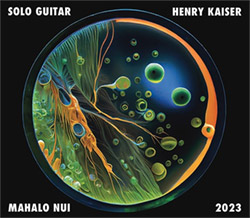
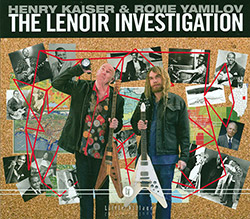

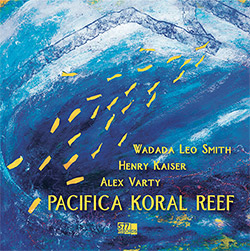
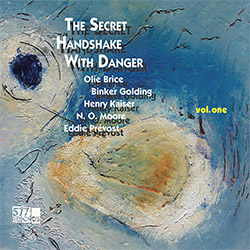

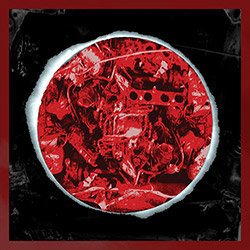
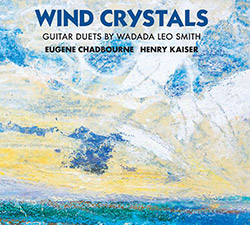





![BlueRing Improvisers: Materia [2 CDs]](https://www.teuthida.com/productImages/misc4/36513.jpg)








![Wheelhouse (Rempis / Adasiewicz / McBride): House And Home [VINYL]](https://www.teuthida.com/productImages/misc4/36462.jpg)
![+DOG+: The Light Of Our Lives [2 CDs]](https://www.teuthida.com/productImages/misc4/36009.jpg)


![Parker, Evan / Jean-Marc Foussat: Insolence [VINYL]](https://www.teuthida.com/productImages/misc4/36398.jpg)










![Deupree, Jerome / Sylvie Courvoisier / Lester St. Louis / Joe Morris: Canyon [2 CDs]](https://www.teuthida.com/productImages/misc4/36404.jpg)



![Eventless Plot | Haarvol: The Subliminal Paths [CASSETTE + DOWNLOAD]](https://www.teuthida.com/productImages/misc4/36232.jpg)










![Eventless Plot | Francesco Covarino: Methexis [CASSETTE + DOWNLOAD]](https://www.teuthida.com/productImages/misc4/36231.jpg)



![Das B (Mazen Kerbaj / Mike Majkowski / Magda Mayas / Tony Buck): Love [VINYL]](https://www.teuthida.com/productImages/misc4/36329.jpg)


![Eternities: Rides Again [CASSETTE]](https://www.teuthida.com/productImages/misc4/36247.jpg)
![Lopez, Francisco: Untitled (2021-2022) [2 CDs]](https://www.teuthida.com/productImages/misc4/36438.jpg)






![Money : Money 2 [2 CDs]](https://www.teuthida.com/productImages/misc4/35894.jpg)




![Klinga, Erik: Elusive Shimmer [VINYL]](https://www.teuthida.com/productImages/misc4/36258.jpg)
![CHANGES TO blind (Phil Zampino): Volume 9 - I Wave on a Fine Vile Mist [CD + DOWNLOAD]](https://www.teuthida.com/productImages/misc4/36061.jpg)

![Wallmart / Rubbish: Asset Protection [split CD]](https://www.teuthida.com/productImages/misc4/35900.jpg)


![+Dog+: The Family Music Book Vol. 5 [2 CDs]](https://www.teuthida.com/productImages/misc4/35897.jpg)
![Kuvveti, Deli : Kuslar Soyledi [CASSETTE w/ DOWNLOAD]](https://www.teuthida.com/productImages/misc4/36107.jpg)

![Brown, Dan / Dan Reynolds: Live At The Grange Hall [unauthorized][CASSETTE]](https://www.teuthida.com/productImages/misc4/36245.jpg)








![Palestine, Charlemagne / Seppe Gebruers: Beyondddddd The Notessssss [VINYL]](https://www.teuthida.com/productImages/misc4/36206.jpg)
![Palestine, Charlemagne / Seppe Gebruers: Beyondddddd The Notessssss [NEON GREEN VINYL]](https://www.teuthida.com/productImages/misc4/36207.jpg)

![Laubrock, Ingrid: Purposing The Air [2 CDs]](https://www.teuthida.com/productImages/misc4/35639.jpg)

![Yoko, Ono / The Great Learning Orchestra: Selected Recordings From Grapefruit [2 CDs]](https://www.teuthida.com/productImages/misc4/35841.jpg)









![Zorn, John / JACK Quartet: The Complete String Quartets [2 CDs]](https://www.teuthida.com/productImages/misc4/35609.jpg)

![Lonsdale, Eden: Dawnings [2 CDs]](https://www.teuthida.com/productImages/misc4/35480.jpg)


![Sorry For Laughing (G. Whitlow / M. Bates / Dave-Id / E. Ka-Spel): Rain Flowers [2 CDS]](https://www.teuthida.com/productImages/misc4/35985.jpg)

![Rolando, Tommaso / Andy Moor : Biscotti [CASSETTE w/ DOWNLOADS]](https://www.teuthida.com/productImages/misc4/36106.jpg)


![Electric Bird Noise / Derek Roddy: 8-10-22 [CD EP]](https://www.teuthida.com/productImages/misc4/35970.jpg)








![Elephant9 : Mythical River [VINYL]](https://www.teuthida.com/productImages/misc4/34624.jpg)



![Elephant9 with Terje Rypdal: Catching Fire [VINYL 2 LPs]](https://www.teuthida.com/productImages/misc4/35355.jpg)
![Deerlady (Obomsawin, Mali / Magdalena Abrego): Greatest Hits [VINYL]](https://www.teuthida.com/productImages/misc4/34876.jpg)







![Surplus 1980: Illusion of Consistency [CD]](https://www.teuthida.com/productImages/misc4/35069.jpg)
![Staiano, Moe: Away Towards the Light [VINYL + DOWNLOAD]](https://www.teuthida.com/productImages/misc4/35037.jpg)
![Coley, Byron: Dating Tips for Touring Bands [VINYL]](https://www.teuthida.com/productImages/misc4/17906.jpg)

![Lost Kisses: My Life is Sad & Funny [DVD]](https://www.teuthida.com/productImages/misc4/lostKissesDVD.jpg)